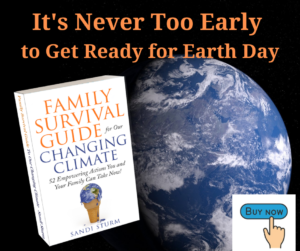I heard from a parent this week that said her four children, ages between 12 and 19, think they do not have a future because of climate change and global warming. She said they don’t think they live as long as our generation.
This reminded me of when I was that age. We had the same thoughts, but it was due to the fear of having an atomic bomb landing nearby. We were being fed a steady news diet of crazy dictators pushing buttons. This kept many from planning much past the age of 50.
Today, those horror stories are replaced with sensationalized climate stories. Even though most are true, there seems to be a lack of positive news to balance things (emotions) out.
It can seem fruitless to a child to think about their future when all they see is gloom and doom. I know my 20-something grandchild and her friends do not plan on having children.
It seems to me that emotions are not considered when stories are written for the well-groomed anchors before the camera or those that make a living from fear-mongering.
As parents, and grandparents in my case, the task of addressing these emotions around climate change may seem impossible. But there are ways to do so and there are many success stories out there to share.
In other words, there is hope.
Let’s first look at what emotions our loved ones may be experiencing.
Top Emotions Felt by Children Regarding Climate Change
Fear and anxiety are two of the top emotions felt by children regarding climate change and global warming because they do not understand how it will affect them. They are also afraid of the natural disasters that are becoming more frequent and severe, and how their parents will react to the news of climate change.
Many children experience anger, disappointment, and frustration about the lack of action to address climate change by local communities and government. They are also frustrated with the public for not understanding climate science.
Many children are sad and concerned about the future and the effects of climate change on their families. They are also sad about the effects of our changing climate on the environment and the extinction of animals.
Many children are confused about the science of climate change. The big picture is often broken down into smaller bits that do not make sense. We hear “atmospheric river” and “vortex” from the weathercaster, but they don’t explain what it is or how it has changed over the past few years. They see smoke-filled skies and people evacuating but do not know the conditions that caused an increase in wildfires.
We only see the results, not the cause.
Children’s understanding of climate science can vary greatly depending on their age, level of education, and cultural background. However, a 2017 study found that, overall, children believe climate change is happening and that it is a serious problem. Additionally, a 2017 study found that, when informed about the scientific evidence behind global warming, children are more likely to support policies to reduce carbon emissions.
How to Have Family Discussions About Climate Change
Climate change is a huge issue that impacts everyone in the world. It’s important for families to talk about climate change and come up with strategies to reduce their own stress about the issue. Here are some tips for having a successful family discussion about climate change:
- Start by discussing why climate change is important.
One of the best ways to have a successful family discussion about climate change is to start by discussing why the issue is important. This will help your family understand the importance of climate change and why they should care. Reach out if you need to find reliable resources on the topic.
- Work together to come up with strategies to reduce your own stress.
One of the best ways to reduce your own stress about climate change is to work together with your family. This can involve coming up with strategies to reduce your own carbon footprint, supporting sustainable practices, and more.
- Be supportive and understanding when families are struggling.
One of the best ways to be supportive and understanding when families are struggling is to be patient and understanding. This can help reduce the stress felt by families about climate change. Discuss how many of the migrants wanting to enter our country are climate refugees from regions no longer able to grow food and get clean water.
- Talk about your own experiences with climate change.
Another great way to have a successful family discussion about climate change is to talk about your own experiences with the issue. This can help your family understand the issue better and come up with strategies to reduce their own stress. Maybe you have a cousin in Florida that has been affected by a hurricane or flooding. Or maybe you know someone that has been evacuated due to wildfires.
- Remember to have fun!
It’s important to remember to have fun while discussing climate change. This can help reduce the stress felt by family members and help keep the discussion productive.
—
Soon I will be posting all the great success stories from around the world that you can share with your family. So many great things are happening in the fields of alternative energy, electric vehicles, and other sustainable practices.
Follow us on Facebook for other great tips and stories.






